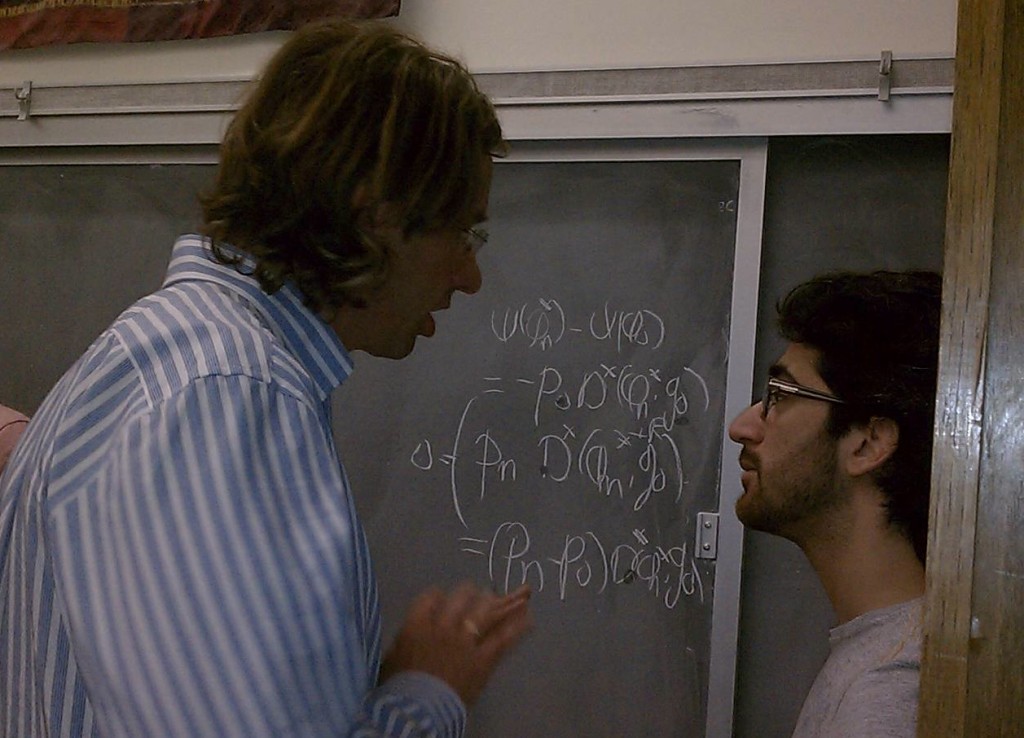As you know, we are now one month into the International Year of Statistics.
What, you didn’t know that?
Yeah, statisticians aren’t really all that great at promotion. Which is too bad, since they work on interesting problems in just about every field of science and engineering.
The first time I went to the Joint Statistics Meeting — a fairly huge annual conference organized by four statistics professional organization — I was surprised by the range of presentations. I was there for a panel on estimates of the Iraq war’s death toll, but that ran alongside talks on ways to improve clinical drug trials and the FBI’s Uniform Crime Reports, how to better analyze international development data, and methodological improvements in modeling the circulation of waters in Lake Michigan. And there was almost no coverage. I met one local AP business reporter, but that was it. Granted, public relations is not the primary role of a scientific society, but it’s a useful one. I’ve been to many meetings where carefully orchestrated press outreach highlighted the policy-relevant talks. Heck, even computer engineers, not exactly an incredibly pr-savvy group, have their own Barbie.
 And statistics shouldn’t be that hard to make interesting. That meeting did it for me. The way political controversy had hijacked what should have been a technical problem — estimating Iraqi deaths – fascinated me. And, perusing the meeting schedule over coffee at the Salt Lake City convention center, I started to realize that statisticians work on almost everything. I decided that if I ever went back to school, this is what I’d want to learn.
And statistics shouldn’t be that hard to make interesting. That meeting did it for me. The way political controversy had hijacked what should have been a technical problem — estimating Iraqi deaths – fascinated me. And, perusing the meeting schedule over coffee at the Salt Lake City convention center, I started to realize that statisticians work on almost everything. I decided that if I ever went back to school, this is what I’d want to learn.
It took me a couple years to figure out how to act on that interest, but, in 2010, at 36, I started a masters in public health at UC Berkeley. My plan was to spend two years mastering epidemiological research methods and data analysis, then try doing some of this stuff myself. However, I quickly discovered that two years was not enough time to master a completely new field, and that, much to my surprise, learning statistics was actually fun. (There’s a difference between wanting to know something and actually enjoying the struggle to learn it.) The little bits of probability I picked up in my first intro class were fascinating – more mind boggling than intuitive, but that only encouraged me to study more. And take more. My program required a number of applied data analysis classes, and I started adding statistical theory courses as electives. Those classes were hard, at least for someone who’d last taken a math class in the early nineties. I bought a calculus book to review and audited an undergrad linear algebra course. And I studied. A lot. I stopped cooking at home. I stopped dating.
But I was having fun. I’d been stagnating at work for a few years before the return to school, and it felt good to stretch my brain. So I applied to the biostatistics PhD program; I’m now half way through my first year of doctoral work. It’s still hard and still fun – and I’ve even managed to reinstitute a bit of work life balance. And research tells me that this mid-life upheaval is a good idea; one way to help maintain brain function as you get older is to leave your intellectual comfort zone.
When I look around me, that seems plausible – statisticians do seem to age well. And they get to work on interesting things. In addition to estimating war death tolls, statisticians produce all those life expectancy and health statistics you get from governments and UN agencies, and they make predictions and test hypotheses in just about any field that produces data: economics, public health, public policy, finance, the military, you name it. They predict the outcome of presidential races.
For now, I’m still interested in questions about health and death, but I can already tell that the degree can go places I wouldn’t have expected. This fall, a researcher from Facebook presented in one of my seminars. After describing some pretty interesting work analyzing the effects of peer influence (if you’re wondering — yes, social media companies are experimenting on you), he made a recruiting pitch. That was shortly after I got an email advertising the NSA’s graduate mathematics summer program.
Unlike in many fields of science, the increasing need for statisticians is still outpacing the supply. Really, we’re overdue for an International Year of Statistics.
So, this is your chance to help get the word out. Heck – you could probably own the story. The International Year web site has ideas to get you started, including statistician “job of the week” profile and links to the the more than 1400 participating organizations (from over 100 countries).
And, in the interest of interesting the kids, maybe somewhere in one of those 1400 organizations, there’s someone with a friend at Mattel.
###
Robin Mejia is a PhD student in biostatics at UC Berkeley.
Image credits: Statisticians talking at a birthday lunch by Robin Mejia. Death raft by Shutterstock.

I very much enjoyed this column, not only because it showed how much data – and the need to analyze it – is playing an increasingly crucial role in our world and lives, but because of the author’s life change. People go back to school all the time a little later in their lives, often with a much better idea why they want to be there than when they were 18. But to go back and get a PhD in statistics at a top school with virtually no background or schooling in the subject . . . that’s quite a feat. I truly admire your passion and drive and fearlessness, Robin. And once you get your degree and begin applying it at Facebook or the CDC or wherever you decide to work, I hope you’ll use your journalistic skills to pen an occasional column here or elsewhere that helps explain some of the exciting work that statisticians do.
Robin, your story is well-written and inspiring! Thanks for sharing. Also, if you ever feel like letting your science writing skills rub off on fellow UC Berkeley grad students, check out the Berkeley Science Review: http://sciencereview.berkeley.edu/. We are always recruiting more writers, editors, bloggers, etc.